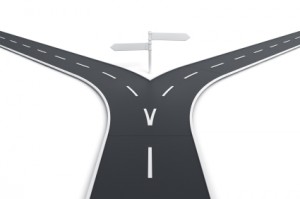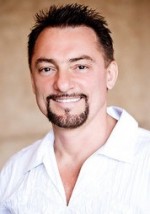Before we learn the disciplines, it’s critical that the “hard-easy/easy-hard” concept is understood.

“Hard-easy” refers to those things in life that initially appear to be difficult, yet in the long run they make life much easier and more enjoyable.
On the other hand, “easy-hard” refers to things that seem easy at first yet lead to far more difficulties down the road.
For example, suppose a young boy steals a candy bar from a store. He did so because he thought that it would be easier to steal than to earn the money to buy the candy bar.
However, it’s clear that if he develops a habit of theft, life will end up being much more difficult for him (easy-hard). On the other hand, telling the truth and facing the consequences may seem like the hard thing to do, but will make his life so much easier as he develops (hard-easy).
The Law of Discipline means that we must consistently apply “hard-easy” in our lives in order to succeed, whereby doing the hard thing first makes the rest of your life easier.
Conversely, doing the easy thing first makes the rest of your life hard. Notice that the word “discipline” has “disciple” as its word root, alluding to the sacred nature of its meaning. In Latin, the word disciplare means “to teach.”
By applying the Law of Discipline we are actually going through a sacred teaching as we re-pattern our lives to become disciplined. In this context you can see why the ego hates discipline, especially new spiritual ones that could signal its demise.
Thus it works particularly hard to derail these efforts. It is lazy and always prompts us to procrastinate or get distracted until suffering forces us to produce out of fear, but clearly fear is not a very long-term productivity motivator.
“However strong a castle may be, if a treacherous party resides inside (ready to betray at the first opportunity possible), the castle cannot be kept safe from the enemy. Traitors occupy our own hearts, ready to side with every temptation and to surrender to them all.” -John Owen
In the ascending mode, expect pain as you input new disciplines into your life. This is because the ego shuns discipline and works very hard to convince you that it is ridiculous and unworthy of your time and energy.
As you commit to doing these “hard” tasks, the thought stream will throw all sorts of obstacles at you, so be seriously diligent with your willingness to surrender all these negativities to God as they arise.
Though you are still going uphill, doing so will create traction and momentum. Next, be prepared for a bit of backsliding both mentally and emotionally, for as any mountain climber knows, it is part of the ascending process.
Stay the course — this is normal and to be expected. As you persist with your new habit, it will not only get easier, but will begin to bear fruit in the form of profit. This exciting phase typically signals that you are reaching the development phase in which the habit is now written into the hard drive of your subconscious mind.
Once this happens, you begin a descending arc towards greater life success. What was once painful now becomes pleasurable and satisfying.
*********************************
 Steve D’Annunzio is the founder of the Soul Purpose Institute, the author of The Prosperity Paradigm, and a productivity trainer and life success coach to Fortune 100 executives, professional athletes, and high-performance entrepreneurs. For twenty years, he has been helping people identify their passion, develop it into a business idea, and deliver it to the world.
Steve D’Annunzio is the founder of the Soul Purpose Institute, the author of The Prosperity Paradigm, and a productivity trainer and life success coach to Fortune 100 executives, professional athletes, and high-performance entrepreneurs. For twenty years, he has been helping people identify their passion, develop it into a business idea, and deliver it to the world.
A member of the Transformational Leadership Council, Steve has shared the stage with world-changers like Dr. Deepak Chopra, Dr. Wayne Dyer, Marianne Williamson, Jack Canfield, and Barbra-Marx Hubbard.
He uses principles of higher awareness to inspire others to be far greater versions of themselves than they ever knew to be possible. By combining scientific and spiritual truth, he co-creates inner transformations for people to experience more outer prosperity in their life.
He is an author and composer of many books, paradigms, and artistic projects that have the common theme of alleviating human suffering and enhancing joy.
Steve lives with his family in Rochester, New York.






Speak Your Mind
You must be logged in to post a comment.